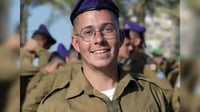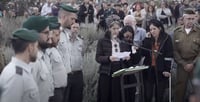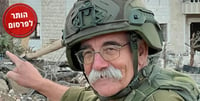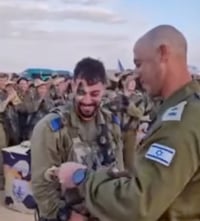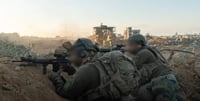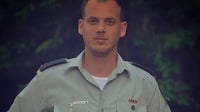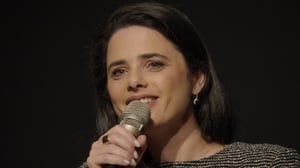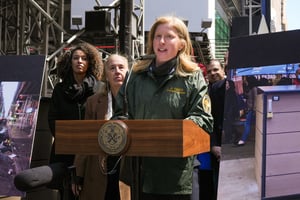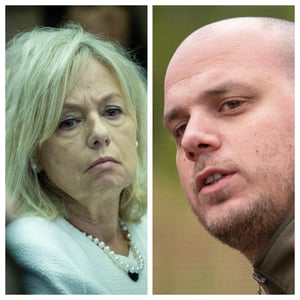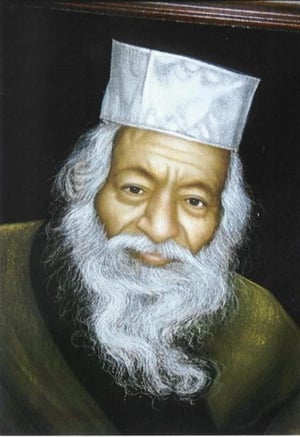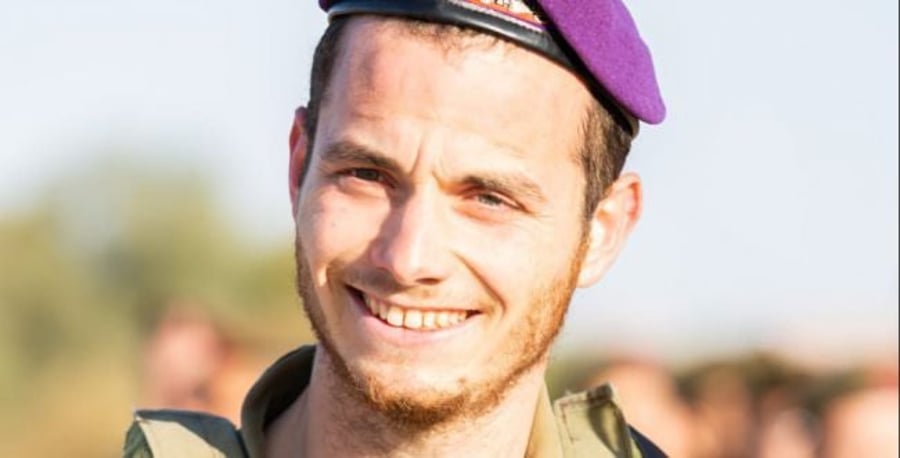
Yehuda Natan Cohen grew up in Shadmot Mehola, studied at the High Yeshiva in Hispin, and spent one year at the Eli Preparatory School, and from there he enlisted in the Sayeret Givati.
T., from Yehuda's family, spoke to us about Yehuda and said that "the family in which Yehuda grew up has deep roots, values, full of fear of heaven, they came to the Jordan Valley to settle the land, a house steeped in Torah, yeshiva language in the house, they were hosts The Yeshiva students at every opportunity, that's where Yehuda grew up."
Doing big things and treating them as small
In his words, T. described the qualities of Yehuda, when he said: "Yehuda was moral, connected to the land, the Torah and fear of heaven, but what characterized him the most was his modesty, he would do big things and treat them like small things."
About a week after the war broke out, Yehuda had a break of half an hour and he decided to go visit T. who was also conscripted. Yehuda told him how he was jumped to the south on Simchat Torah, "and traveled like a madman" to reach the kibbutzim in the Otef (Gaza envelope). When the stages in the story came where he could be proud, of the fighting and heroism, he stopped the story because "he had no ego".
The family later found out what happened in Nahal Oz on Simchat Torah. Yehuda, who was a gifted chess player, decided to build a strategy and prepare the moves before going into combat. He learned what was happening in Nahal Oz, how the settlement was built, what was inside, and how many terrorists were in the kibbutz - and with the help of the information he conducted the battle.
"Nahal Oz is adjacent to Be'eri, it could have ended like in Be'eri, because of the fighting and heroism of Yehuda's company, from Nahal Oz there were ten dead and five kidnapped, and the soldiers returned in peace", said T. He also said that when Yehuda would call from the war, he "would claim, 'We are guarding Nahal Oz.' Today we know that he fought a battle against dozens of terrorists."
According to T., Yehuda used to deal with weighty issues, matters of the utmost importance. "With his father, mother, and brothers at the Shabbat table, there were always meaningful conversations, 5 minutes later he would go play with the five-year-old nephews, "catch", and then sit down with a 70-year-old man for chess, that was Yehuda, he knew how to connect with everyone."
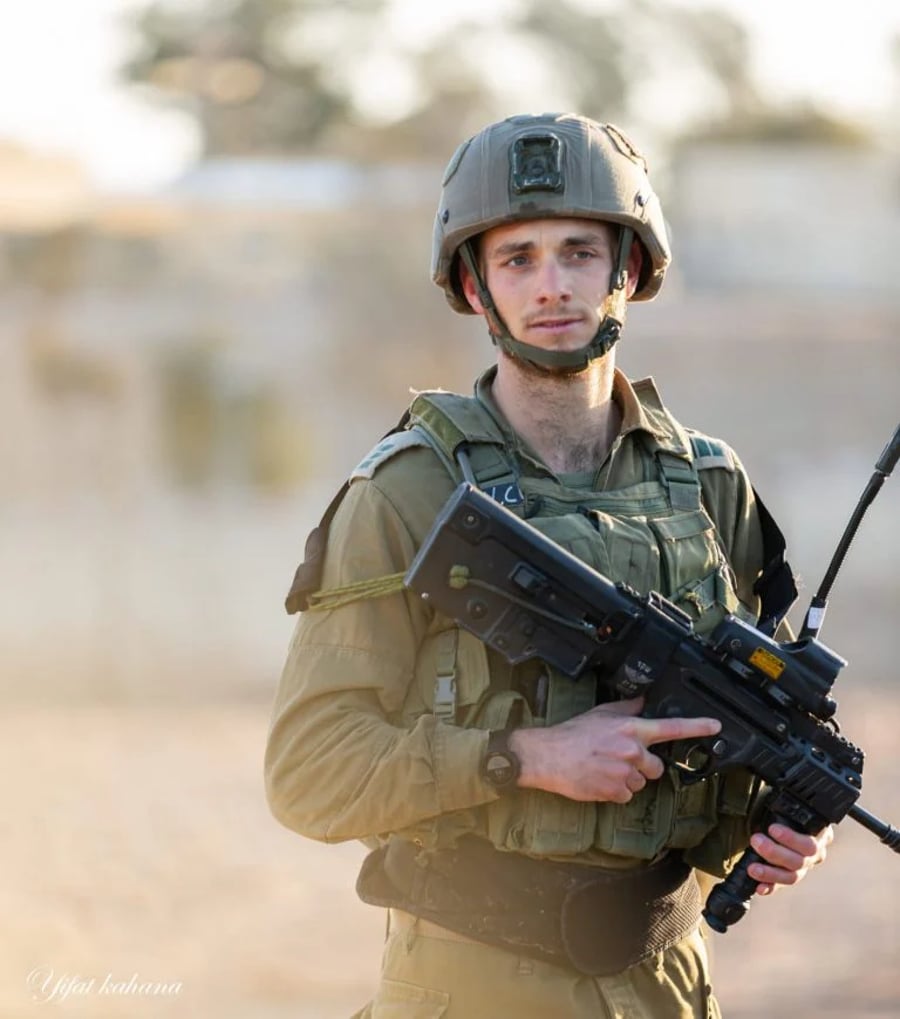
He wanted to live the Torah and put it into practice
"My husband's year at the seminary was good for him. We in the family felt that he was in the middle of the process, and maybe he should stay a little longer, the Torah really revived him, but Yehuda already wanted to live the Torah, to apply it, not only to listen to the people of Israel and the Land of Israel but to go into action. 6 years Yehuda served in the army and during this time he was in contact with the Beit Midrash. Every regular year he went to the preparatory school, even when he had a three-month leave of absence, he arranged his schedule to be in the preparatory school, he arrived there as a rookie, as a soldier, and as a military officer. ".
About his modesty, T tells another short story: "During the Yom Kippur, Yehuda used to go to Eli Preparatory School, but over the years he felt that the fact that he was an officer in Sayeret Givati was really interesting to the guys,' and they wanted to talk to him about it. Yehuda did not feel comfortable with The questions. And he found a simple solution: on Yom Kippur, he is in silent. That way he avoided the embarrassment of telling about the path he had taken. "At Yehuda's funeral, they said that he really wanted to get married, but due to the burden of the job he couldn't, so at the funeral they sang The Chabad Niggun of Four Stanzas, the Chabad tune." which is played only during chuppah time".
"Yehuda was killed at the right time, at the right moment, in the right position"
"At the Shiva", describes T., "Everyone arrived, including everyone. Representatives from Nahal Oz, parents of Yehuda's soldiers in Gaza who couldn't come because of the fighting, someone came whose fiancé is a Yehuda officer, it was clear to her that he would have come here if he wasn't in the fighting and she came in its place".
Shadmot Mehola has 150 families, and last week she buried three of her sons. "The administration in the settlement is very strong, we feel unique here", said T. "Everyone helps, takes the children, cooks, and sends treats from all the settlements in the country, the main thing is that we are focused on Shiva."
T. concludes his words with faith: "Yehuda's family is a family of holocaust survivors from both sides. Yehuda was not killed out of necessity, he chose that way. This is part of the redemption of Israel, of the resurrection, and it greatly strengthens the family. One could enter into investigations as to why they were not destroyed, and why They didn't - but we believe that he was killed at the right time, on the right day, at the right minute, in the right position and we are very strengthened by that."

